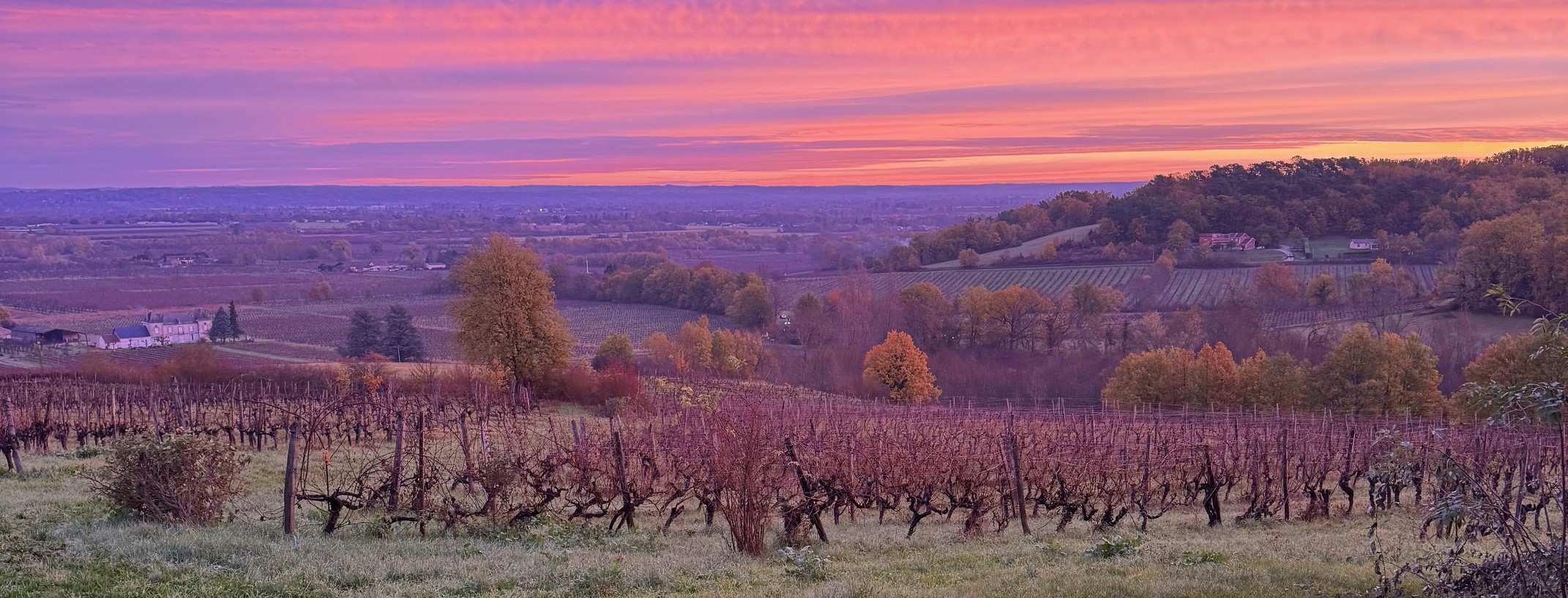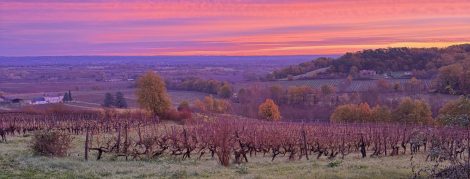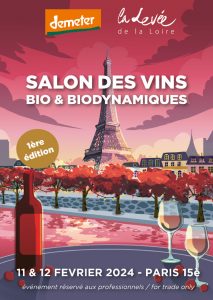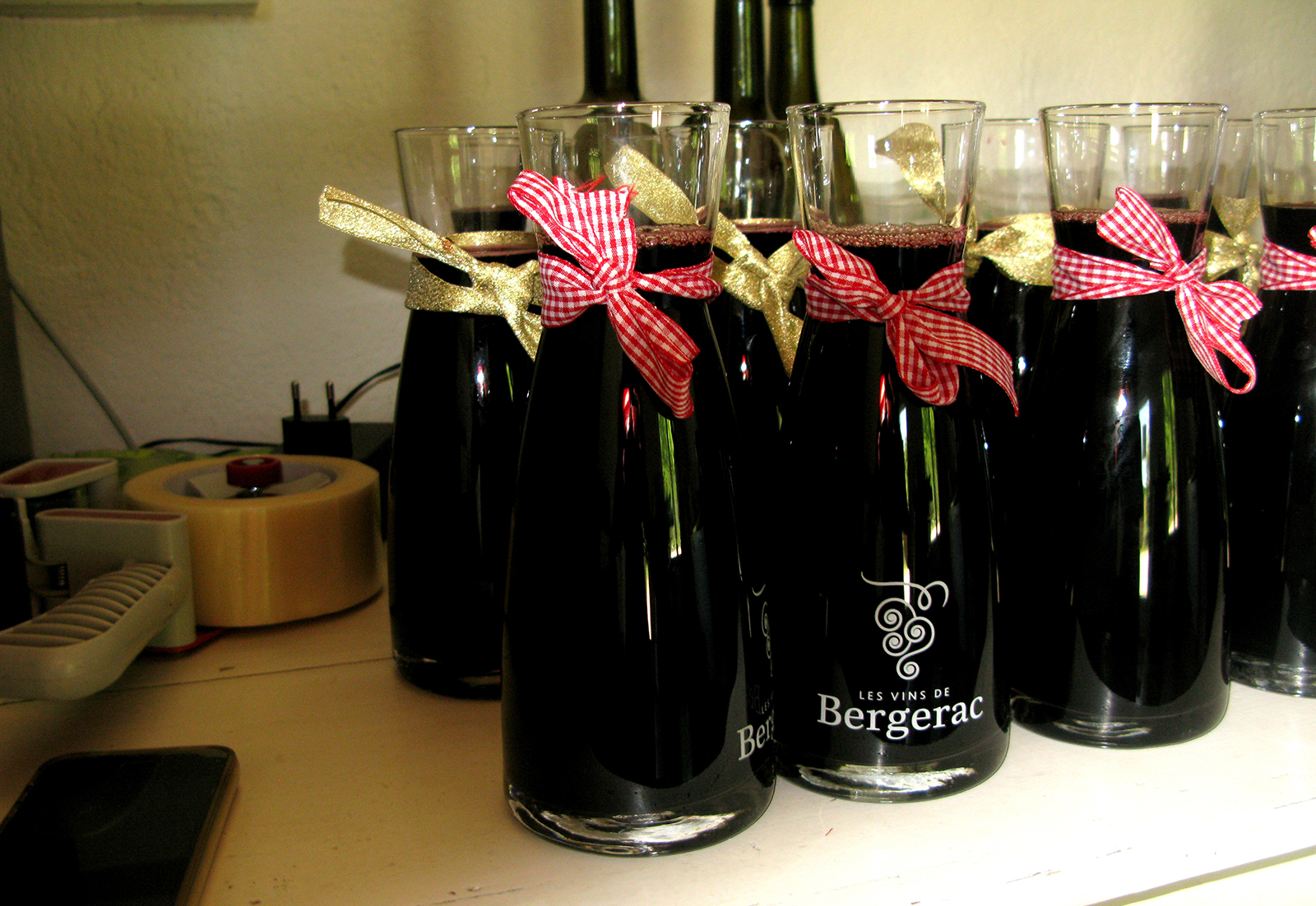
Professional Organic Wine and Natural Wine Shows in France 2024
French Wine Adventures is based in and specialised in Wine Tours in South West France but our wine school also teaches guests and clients about wines of the world and wines of France. We love attending wine shows (Salons du Vin) to meet with old friends and new and to see what other winegrowers are doing (we offer wine tours and wine school here at French Wine Adventures, but we also have an organic vineyard Chateau Feely).
French Salons du Vin French Wine Fairs 2024 Heads Up
Late January to mid February is a time for professional wine fairs in France, particularly if you are interested in Organic Wine and Natural Wine. If you are studying wine via WSET or the Court of Sommeliers, visiting wine shows is a great way to expand your palate.
It can be cold but winter vines are beautiful and there are no summer crowds.
At French Wine Adventures we focus on organic wine, biodynamic wine and sustainable travel so we recommend travel by train or car sharing to voyage between these shows; or get in touch, and we can custom create an itinerary and travel with you.
January
Millésime BIO, Montpellier
Millésime BIO The biggest organic wine fair in the world that has been running for more than 30 years. It is enormous with around 1500 participants from 20 countries with many participants from Languedoc Roussillon and Provence. We participated in this show for a couple of years. You can read about it in Caro Feely’s book Saving Our Skins which also charts the early days of our wine school and visits to the wine regions of Alsace, Burgundy and Napa Valley.
Full details here https://www.millesime-bio.com/
When: 29-31 January (times are different each day see the site for specifics)
Where: Parc des Expositions de Montpellier, Route de la Foire, 34470 Pérols
A significant hive of ‘off’ salons that have developed around this fair. One of the most well-known is:
BioTop, near Montpellier
BioTop started in 2013. It offers a large selection of organic and biodynamic estates. They started small and have grown into a set of 6 salons across France.
When : 28-29 January 10am – 6pm
Where : Domaine des Grands Chais, route de Vauguières, 34130 Mauguio (This is about 10 minutes drive from the Millésime Bio site)
Book your place https://yurplan.com/events/BIOTOP-Montpellier/114229
For your free time between the end of Millesime Bio in Monpellier and the start of the Loire Valley shows visit Chateau Feely and Bordeaux for the weekend or book a Tour with us – we are about half-way between Montpellier and Saumur.
February
La Dive Bouteille, Saumur
This is a legendary natural fair with hundreds of participants from all over France and a smattering of international participants. You will find many wonderful natural wines and some funky natural wines. You can read about the early days of the Feely’s journey with natural wine in Caro’s third book Vineyard Confessions – Tales of Menopause, Love and Natural Wine.
When:4-5 February 10am – 6pm
Where: Caves Ackerman, 19 Rue Léopold Palustre, 49400 Saumur
More here http://www.dive-bouteille.fr/
La Levée de la Loire, Angers
An organic fair started 7 years ago with participants from all over France.
When: 5-6 February 10am-6pm
Where: Parc des Expos, Route de Paris 49000 ANGERS
More here: https://laleveedelaloire.com/
Within the Levée you will also find:
Salon des Vins Demeter, Angers
We participated in this show a few years ago, it has a good representation of the Loire Valley.
When: 5-6 February
Where: Parc des Expos, Route de Paris 49000 ANGERS
More here Demeter Fair Angers
Take a break for a couple of days before going to Paris for the next crush of pro wine salons.
Raw Wine Paris
Raw wine was started more than ten years ago by Isabelle Legeron, one of the early supporters (and perhaps also a creator of it in some ways, despite not making natural wine) of the natural wine movement. We attended two of the earliest editions when it was a London based natural wine fair. Now it is international with editions across the globe. You’ll find natural winemakers of all colours and sizes.
When: 11-12 February
Where: Espace Clacquesin, 18 avenue du Maréchal Leclerc, 92240 Malakoff
More here Raw Wine Paris
Also hosting wine fairs on these dates in Paris:
BioTop Paris
When: 11-12 February
Where: Newcap Event Center (Paris 15ème)
 Salon des Vins Demeter Paris
Salon des Vins Demeter Paris
This wine fair is also a special celebration of 100 years since the publication of the Agriculture Course by Steiner.
When: 11-12 February
Where: Newcap Event Center : 3 Quai de Grenelle 75015 Paris (métro: Bir-Hakeim)
I love their poster – I am a sucker for Paris imagery – I love scenes of the Seine and the Eiffel Tower.
More here Demeter Paris
Wine Paris (Vinexpo)
This is a massive fair that can be overwhelming. It has wine of all colours and styles and includes the very big volume players and negociant wines. That said, it wines from over 40 wine producing countries – if you are looking to expand your ‘global’ wine palate this would be a good one. I searched for an organic section but didn’t find it, so have sent a request to understand how easy it will be to navigate to certified organic stands.
When: 12-14 February
Where : Paris Expo Porte de Versailles, 1 Place de la Porte de Versailles, 75015 Paris
More here https://wineparis-vinexpo.com/
April
Bordeaux En Primeurs
When : 22- 25 april
Where : all over Bordeaux
If you would like to attend an en Primeur event, get in touch for a wine tour in April.
French Wine Adventures is specialised in French Wine, Wine Education, Wine Tours in Bordeaux, Organic Wine and Sustainable Tourism.
Discover wine on one of our Multi day Wine Tours, Vineyard Walking tours or a Wine Course or get in touch for a custom wine tour, course or experience.


 Salon des Vins Demeter Paris
Salon des Vins Demeter Paris



